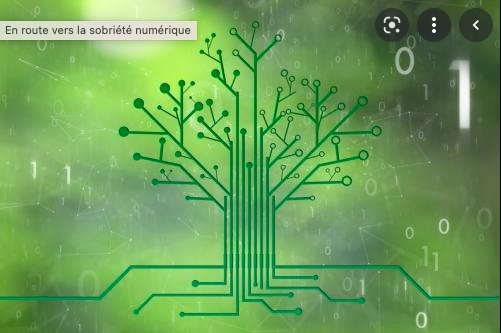A provision in the law aimed at reducing the environmental footprint of digital technology in France calls for raising students' awareness of digital sobriety and environmental issues in computing. This presentation of ecological issues with computing will be included in a more general training on digital, which is already in place.
Another article of this law provides, moreover, that students pursuing an engineering career will have to take " a module on the eco-design of digital services and digital sobriety ". As of the start of the 2022 school year, the engineering qualifications commission will have to check that all engineering courses include such a module.
According to the Interministerial Mission for an Eco-responsible Digital Economy DINUM, "the eco-design of digital services is not only a search for optimization, efficiency or performance but a more global reflection on the use of technologies. It is important to integrate the environmental impacts of digital services in the design of digital services by aiming directly or indirectly to extend the life of digital equipment, to reduce the consumption of computer and energy resources of terminals, networks and data centers.
In this regard, the Interministerial Mission recently published 4 documents as part of this more global reflection:
- The Responsible Digital Best Practices Guide for Organizations;
- The eco-friendly digital toolbox;
- The general reference framework for the ecodesign of digital services ;
- The practical guide to responsible digital purchasing.
Références :
Education for sustainable development today: a blurred object
Education for sustainable development is one of the four themes (along with the fight against harassment, the place of digital technology and European and international openness) that the Conseil d'Evaluation de l'École (CEE) has closely examined, on the occasion of its first report (The School Evaluation Council was created in 2019).The report of this first evaluation campaign is based on the analysis, from a list of keywords, of a sample of 100 randomly selected evaluation reports.
The ERC notes a relatively weak presence of the theme in the evaluation reports, since two-fifths of them do not mention it at all and only one-third include at least two items on the subject.
- In the schools, the eco-delegates and the School Life Council are widely mentioned, but also the Principal Education Advisors, the documentalist teacher, some teachers and agents (catering and spaces), sometimes with a more encompassing vision, in the spirit of the principles of sustainable development.
- The actions carried out concern recycling and the fight against waste, the living environment (well-being, school climate), and broader themes (citizenship, heritage, culture) in connection with other courses.
- The E3D label (see below) is very present and makes it possible to federate sometimes very diverse actions.
- The disciplines are not forgotten (multidisciplinary projects, evaluation by competence, oral, accompaniment, etc.), the student being taken into account as a whole.
- Beyond a sometimes restrictive vision of sustainable development (limited to the fight against waste, for example), there is room for real reflection that is not always undertaken by the establishments.
- On the strategic side, the E3D (Education for Sustainable Development) label is a support point.
This approach participates in education for sustainable development, making the school a place of global learning for sustainable development. It is an important component among the different modalities of reinforcement of education for sustainable development that have been promoted at the national and academic levels since 2019.
The latest annual assessment conducted in October 2021, which covers the 2020-2021 school year, shows a strong progression: there are now more than 7,700 schools, colleges and high schools that have been awarded the E3D label.
Références :
Sources
- 1. Students will be educated about digital sobriety
- 2. Students will now be educated on digital sobriety and eco-design
- 3. Law n° 2021-1485 of November 15, 2021 aimed at reducing the environmental footprint of digital technology in France
- 4. About the eco-design of digital services
- 5. School Evaluation Council: 2020-2021 Annual Report on the Institutional Assessment Campaign, 2022
- 6. The "E3D" approach





